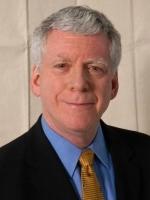Craft and Engineering in the Management Science
Speaker A The third area I call engineering. And Elliot said, engineering is an art rendered in a science, by which he means that a civil engineer's bridge design, the design is justified by, but not ...
Transcript of the presentation video
NOTE: This transcript of the video was created by AI to enable Google's crawlers to search the video content. It may be expected to be only 96% accurate.
Speaker A The third area I call engineering. And Elliot said, engineering is an art rendered in a science, by which he means that a civil engineer's bridge design, the design is justified by, but not dictated by, Newton's laws. Newton's laws don't tell you how to design your bridge. There are many variations. You can go on with your bridge design, but once you've designed it, you can say, yes, I designed that beam to be of that thickness so that it would have this tensile strength or this compressive strength. You're going back to the scientific laws for that. Engineering is a system of templates and methods that are grounded in science, and this is what differs them from craft. Almost our entire field is craft. That is what we do. We justify by precedent all of the correlational work that's done, again, Collins is good to great is a comparison of one design against another. And when you're saying this design is really a good one, the justification is because they used it over here and it worked for them over here. Nothing wrong with craft. Craft is very useful. What differs requisite organization from other approaches is that it's not craft, it's engineering. We justify. When I now know to say to a client, you're not a four managing a two, and they say, well, so what's wrong with that? I justify it now, not in saying, well, our template says you need to have one strategy between manager and support. I now go back to the science and I say, well, I would predict from our science the following problems from your violating our design, our template in engineering, I would predict you're going to have communications problems between the manager and the subordinate. I'm going to predict that your manager at four is going to be bored and not particularly well used doing the Stratum Three work that has to be done. In between, I'm going to predict that the Stratum Two person feels lost and the client may come back and say, well, actually, in that area, there's not a lot of Stratum Three work. Actually, the four and the two get along very well. They communicate very well. The four, as a matter of fact, used to be a school teacher. Kind of gets a kick out of it, and it's very skilled at explaining things to people. And let me tell you what it's going to cost me to have a strategy salary added just so that I can fit your templates. Understanding that the templates need to be justified by the science allows me now to be a lot more flexible and to meet the clients needs and to say to them, you know what, I can understand why you don't want to hire three. Here are problems I still predict that you're going to have, and I can see why you value those less than you value the cost of an additional salary. And it's just really important that you not blame the four and the two for those problems because you're the one who created them. But this is your choice. So this is what having those three levels does. And I want to make it clear that there is research, both at the engineering and at the scientific level, that if something is well researched, that's not what makes it scientific. What makes it scientific is that we're looking at general laws of cause and effect in a system of such laws when we I mean, I remember Elliot saying that mind isn't the I'm not saying my mind is the best theory, meaning the best scientifically grounded approach. I'm just saying it's the only one, the only one existing. If someone else comes up with another one, it might turn out to be better. I think that's the kind of thing we need to look at. When we say we're grounded in science, we don't mean that. We've done a lot of research. Again, Jim Collins has done some excellent research, I would say, but it was craft research. It wasn't science research. It wasn't engineering research. He wasn't looking at what is the psychology underlying good organization design. He was saying which of these designs works? If conceptual framework is about how we make sense of our data, and science is about objective truth, objective simply meaning what's shareable within the species. Engineering is about what's useful. So the templates and methods of requisite organization are useful for the purpose of an organization building an organization that's effective, that it works well, that's its strategic targets, it's efficient, so it reaches those targets at minimal cost and time and is trustworthy that this is an organization in which people are safe and feel respected. So the test of a scientific template then sorry, the test of an engineering template is, is it useful and which of these two templates is more useful? And I think you always get into scenario issues when you're comparing engineering templates.
Major organizations and consulting firms that provide Requisite Organization-based services





